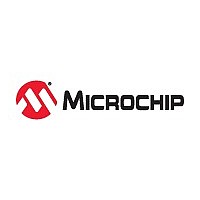PIC18F4580-I/P Microchip Technology Inc., PIC18F4580-I/P Datasheet - Page 193

PIC18F4580-I/P
Manufacturer Part Number
PIC18F4580-I/P
Description
40 PIN, 32 KB FLASH, 1536 RAM, 36 I/O
Manufacturer
Microchip Technology Inc.
Datasheet
1.PIC18F4580-IP.pdf
(402 pages)
Specifications of PIC18F4580-I/P
A/d Inputs
11-Channel, 10-Bit
Comparators
2
Cpu Speed
10 MIPS
Eeprom Memory
256 Bytes
Input Output
36
Interface
CAN/I2C/SPI/USART
Memory Type
Flash
Number Of Bits
8
Package Type
40-pin PDIP
Programmable Memory
32K Bytes
Ram Size
1.5K Bytes
Speed
40 MHz
Timers
1-8 bit, 3-16 bit
Voltage, Range
2-5.5 V
Lead Free Status / Rohs Status
RoHS Compliant part
Electrostatic Device
Available stocks
Company
Part Number
Manufacturer
Quantity
Price
Company:
Part Number:
PIC18F4580-I/P
Manufacturer:
RENESAS
Quantity:
5 600
Part Number:
PIC18F4580-I/P
Manufacturer:
MICROCHIP/微芯
Quantity:
20 000
Company:
Part Number:
PIC18F4580-I/PT
Manufacturer:
MICROCHIP
Quantity:
201
Company:
Part Number:
PIC18F4580-I/PT
Manufacturer:
Microchip Technology
Quantity:
10 000
Part Number:
PIC18F4580-I/PT
Manufacturer:
MICROCHI
Quantity:
20 000
- Current page: 193 of 402
- Download datasheet (8Mb)
18.2.2
The receiver block diagram is shown in Figure 18-4.
The data is received on the RC7/RX/DT pin and drives
the data recovery block. The data recovery block is
actually a high-speed shifter, operating at x16 times the
baud rate, whereas the main receive serial shifter oper-
ates at the bit rate or at F
typically be used in RS-232 systems.
Steps to follow when setting up an Asynchronous
Reception:
1.
2.
3.
4.
5.
6.
7.
8.
9.
FIGURE 18-4:
2004 Microchip Technology Inc.
Initialize the SPBRG register for the appropriate
baud rate. If a high-speed baud rate is desired,
set bit BRGH (Section 18.1 “USART Baud
Rate Generator (BRG)”).
Enable the asynchronous serial port by clearing
bit SYNC and setting bit SPEN.
If interrupts are desired, set enable bit RCIE.
If 9-bit reception is desired, set bit RX9.
Enable the reception by setting bit CREN.
Flag bit RCIF will be set when reception is
complete and an interrupt will be generated if
enable bit RCIE was set.
Read the RCSTA register to get the ninth bit (if
enabled) and determine if any error occurred
during reception.
Read the 8-bit received data by reading the
RCREG register.
If any error occurred, clear the error by clearing
enable bit CREN.
Note: I/O pins have diode protection to V
USART ASYNCHRONOUS
RECEIVER
RC7/RX/DT
Baud Rate Generator
x64 Baud Rate CLK
USART RECEIVE BLOCK DIAGRAM
SPBRG
and Control
Pin Buffer
SPEN
OSC
. This mode would
DD
and V
Recovery
Data
SS
Interrupt
.
CREN
or
16
64
18.2.3
This mode would typically be used in RS-485 systems.
Steps to follow when setting up an Asynchronous
Reception with Address Detect Enable:
1.
2.
3.
4.
5.
6.
7.
8.
9.
10. If any error occurred, clear the CREN bit.
11. If the device has been addressed, clear the
RCIF
RCIE
RX9
Initialize the SPBRG register for the appropriate
baud rate. If a high-speed baud rate is required,
set the BRGH bit.
Enable the asynchronous serial port by clearing
the SYNC bit and setting the SPEN bit.
If interrupts are required, set the RCEN bit and
select the desired priority level with the RCIP bit.
Set the RX9 bit to enable 9-bit reception.
Set the ADDEN bit to enable address detect.
Enable reception by setting the CREN bit.
The RCIF bit will be set when reception is
complete. The interrupt will be Acknowledged if
the RCIE and GIE bits are set.
Read the RCSTA register to determine if any
error occurred during reception, as well as read
bit 9 of data (if applicable).
Read RCREG to determine if the device is being
addressed.
ADDEN bit to allow all received data into the
receive buffer and interrupt the CPU.
Stop
MSb
RX9D
(8)
SETTING UP 9-BIT MODE WITH
ADDRESS DETECT
OERR
7
RSR Register
RCREG Register
8
Data Bus
PIC18FXX8
1
FERR
0
LSb
DS41159D-page 191
Start
FIFO
Related parts for PIC18F4580-I/P
Image
Part Number
Description
Manufacturer
Datasheet
Request
R

Part Number:
Description:
20-Pin USB Flash Microcontrollers
Manufacturer:
MICROCHIP [Microchip Technology]
Datasheet:

Part Number:
Description:
PIC18F With 128-segment LCD Driver And 12-bit ADC, 8KB Flash, 768B RAM, CCP, MSS
Manufacturer:
Microchip Technology
Datasheet:

Part Number:
Description:
PIC18F With 128-segment LCD Driver And 12-bit ADC, 16KB Flash, 768B RAM, CCP, MS
Manufacturer:
Microchip Technology
Datasheet:

Part Number:
Description:
PIC18F With 192-segment LCD Driver And 12-bit ADC, 8KB Flash, 768B RAM, CCP, MSS
Manufacturer:
Microchip Technology
Datasheet:

Part Number:
Description:
PIC18F With 192-segment LCD Driver And 12-bit ADC, 16KB Flash, 768B RAM, CCP, MS
Manufacturer:
Microchip Technology
Datasheet:

Part Number:
Description:
Microcontrollers (MCU) 48KB 3328 RAM 52 I/O
Manufacturer:
Microchip Technology
Datasheet:

Part Number:
Description:
Microcontrollers (MCU) 64KB 3328 RAM 52 I/O
Manufacturer:
Microchip Technology
Datasheet:

Part Number:
Description:
32kB Flash, 2kB RAM, 1kB EE, NanoWatt XLP, LCD 64 QFN 9x9x0.9mm T/R
Manufacturer:
Microchip Technology
Datasheet:

Part Number:
Description:
32kB Flash, 2kB RAM, 1kB EE, NanoWatt XLP, LCD 64 TQFP 10x10x1mm T/R
Manufacturer:
Microchip Technology
Datasheet:

Part Number:
Description:
128kB Flash, 4kB RAM, 1kB EE, 16MIPS, NanoWatt XLP, LCD, 5V 80 TQFP 12x12x1mm T/
Manufacturer:
Microchip Technology
Datasheet:

Part Number:
Description:
32kB Flash, 2kB RAM, 1kB EE, NanoWatt XLP, LCD 64 QFN 9x9x0.9mm TUBE
Manufacturer:
Microchip Technology
Datasheet:

Part Number:
Description:
32kB Flash, 2kB RAM, 1kB EE, NanoWatt XLP, LCD 64 TQFP 10x10x1mm TRAY
Manufacturer:
Microchip Technology

Part Number:
Description:
128kB Flash, 4kB RAM, 1kB EE, 16MIPS, NanoWatt XLP, LCD, 5V 80 TQFP 12x12x1mm TR
Manufacturer:
Microchip Technology












